Genesis 1:31 And God saw everything that he had made, and behold, it was very good. And there was evening and there was morning, the sixth day.
Exodus 20:11 For in six days the LORD made heaven and earth, the sea, and all that is in them, and rested on the seventh day. Therefore, the LORD blessed the Sabbath day and made it holy.
Mark 10:6 But from the beginning of creation, ‘God made them male and female.’
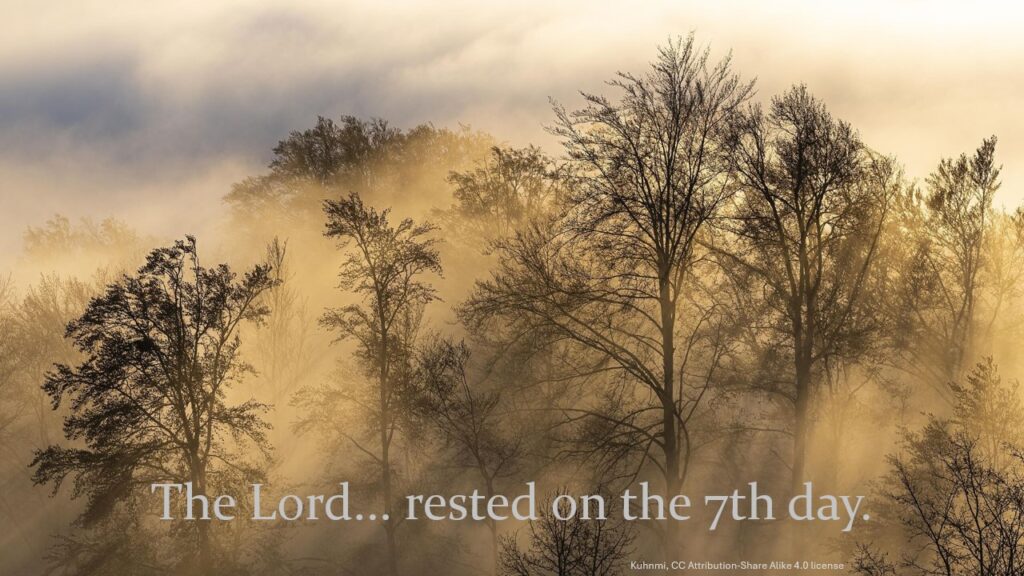
Discussion
A Contentious Topic
Of all the topics regarding Scripture as the true history of the world and mankind, the age of the earth is one of the most difficult for people to consider seriously. Many people will freely question natural evolution, but will quickly shy away from doubting or questioning the conventional dates for the age of the universe (~13+ billion years), the earth (~4+ billion years) and life (~1 billion years or more).
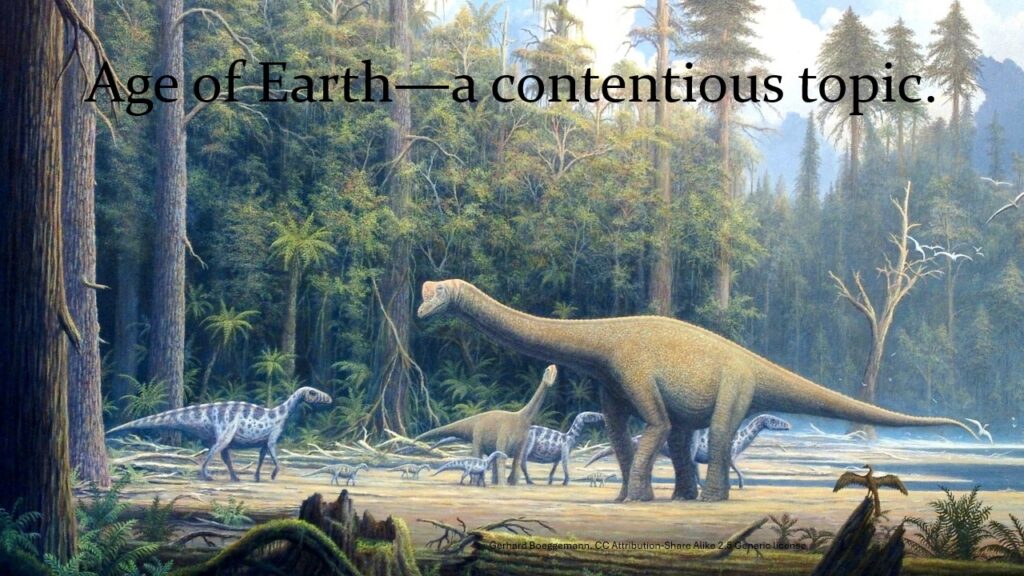
I believe there is an odd psychology at work in most of us, including believers, when it comes to the age question. In this respect, I speak mostly about my own experience, since I grew up not only accepting long ages, but also the “unquestioned” truth of natural evolution. Personally, I preferred long ages to be true, because then I could come up with my own conclusions regarding the big questions: What is life? Why do I exist? What will happen when I die? What will become of mankind?
Little did I realize that by accepting long ages as valid that it was a completely pointless exercise asking any of these questions, because it was totally irrelevant. Not only was my life pointless, but so was existence itself. Admittedly, I was (am) a nerd, but I remember almost being depressed as a young person when I found out that the universe was likely to expand without end, and eventually devolve into a nondescript, featureless and uniform “heat” death, rather than reverse its expansion and collapse into a singularity to begin a new “big bang” expansion.
For me, it seemed to re-enforce the lack of purpose in existence, as if my own eventual “termination” was as pointless as that of the “one-and-done” universe. Thus began a very (years) long re-examination of my own beliefs that eventually led me to accept the Bible (and creation) as the true spoken word of an Almighty (and loving) God.
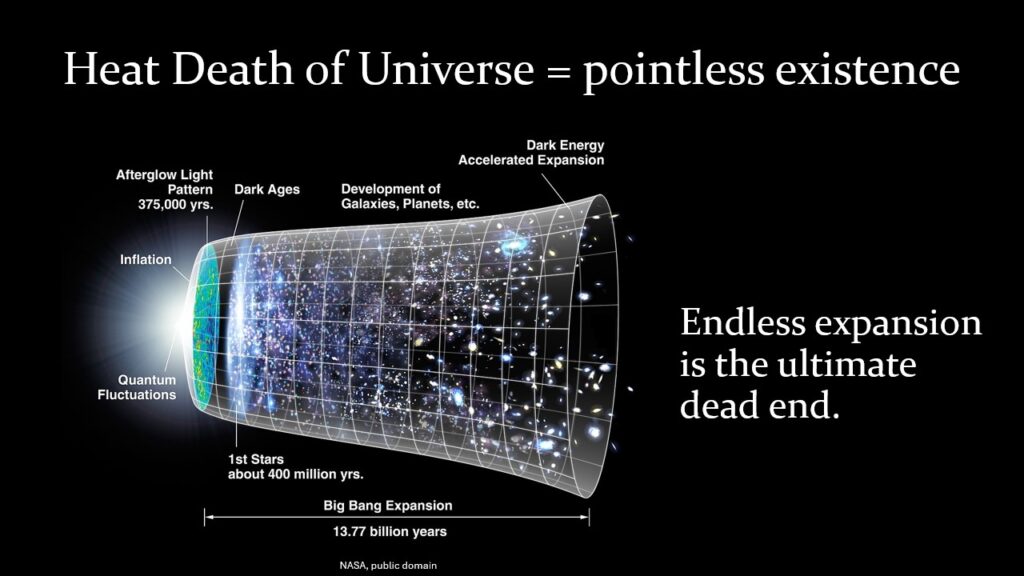
While I now accept the age of the earth as being thousands, not billions, of years old, the board has made a conscious and unanimous decision not to exclude or doubt the faith of anyone who holds to long ages. Faith is a process that comes by the Spirit (Phil. 2:12-13), and none of us have perfect knowledge regarding either the doctrines of Scripture or the science of the natural world. Nonetheless, I present below what I consider to be good reasons from both theology and science to support a young age for the creation.
The Testimony from Theology
The primary reason to accept a recent creation is fundamentally theological. If the Bible is to be accepted as real history, especially Genesis and the other books of the Pentateuch (Greek for “five scrolls”), then there seems little doubt that the intent of the author of Genesis is to indicate that creation occurred in six actual 24-hour periods (days) as measured on earth. Of course, the word “day” can be used generically, independent of a 24-hour period, e.g. “In my father’s day” meaning when my father was alive. However, the association of “day” with the verbal formula, “evening and morning” (a day), is as close to generically saying “24 hours” as you can come without actually saying “24 hours” (which is a time reference that is peculiar to the modern world).
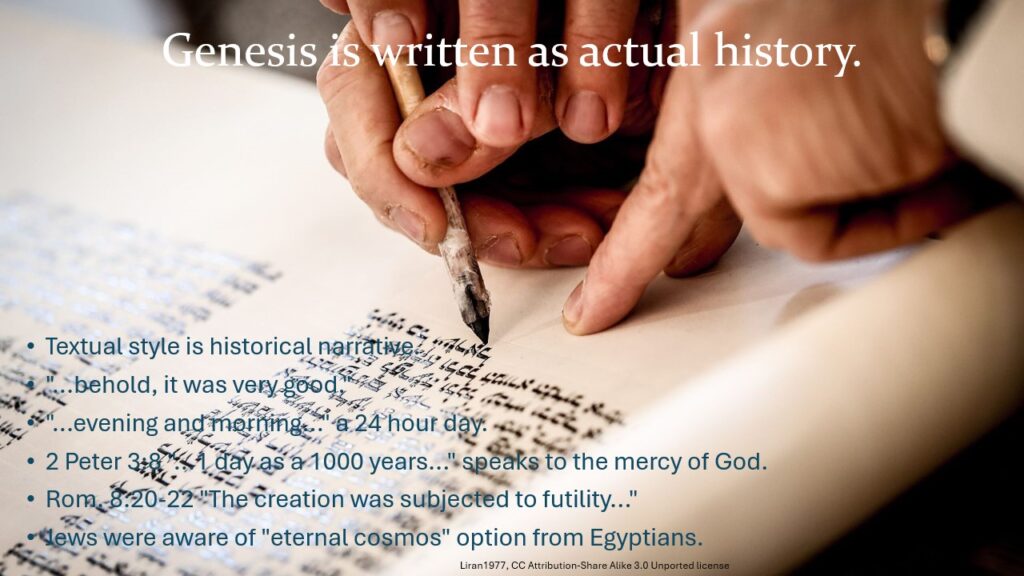
Of course there is the reference in 2 Peter 3:8 that speaks of: “…with the Lord one day is as a thousand years, and a thousand years as one day.” However, this verse actually has nothing to do with time frames and everything to do with the patience (and mercy) of the Lord. Peter was really telling the faithful not to grumble about the Lord “delaying” his return (see verses 9-13).
Returning to the discussion of the creation account in Genesis, more significant than the reference to “evening and morning” is how God describes the completed creation, specifically “…it was very good.” Death, disease, suffering and hardship was not the original condition of the creation, but rather the consequence of the sin of Adam and Eve as clearly stated in Genesis 3:16-19.
Of course, there is the argument that God was only speaking of the Garden of Eden being “good,” but Roman 8:20-22 definitely includes all of creation, and not just Eden in the divine curse: “For the creation was subjected to futility, not willingly, but because of him who subjected it, in hope that the creation itself will be set free from its bondage to corruption and obtain the freedom of the glory of the children of God. For we know that the whole creation has been groaning together in the pains of childbirth until now.”
There is another argument that suggests that Genesis, and chapters 1 to 3 especially, are metaphorical, and teach a theological perspective that is not intended to be historical. Without belaboring this point, there have been many studies that will attest that Genesis is written as historical narrative rather than poetry or allegory, which use specific textual cues and elements for those forms. Those, then, who suggest it is metaphor make that claim without any textual evidence and solely on the basis of preconceptions and prejudice.
What is interesting is that those who hold to a metaphorical conclusion do it on the basis of claiming the Jews were an ancient people who did not have the knowledge that we do. However, the Jews were rather unique in the ancient world, with respect to the nations around them, who generally held to an eternal cosmos out of which the natural world “evolved,” all of which sounds rather modern. The Jews would have been exposed to this world view while enslaved in Egypt before the Exodus, so ignorance and naivete cannot be claimed as the reason for the Genesis account.
Regarding Exodus 20:11 (shown above), the commandment to observe the Sabbath refers to the six days of creation and equates them to the six days in a week for work followed by a seventh day of rest and worship.
Regarding Mark 10:6 (shown above), there can be no question that, as far as Jesus is concerned, he believed in the recent creation of the world as attested in this verse from when he was speaking to the Pharisees regarding the origin and nature of marriage. There are several other New Testament references to a recent creation, which are listed further down.
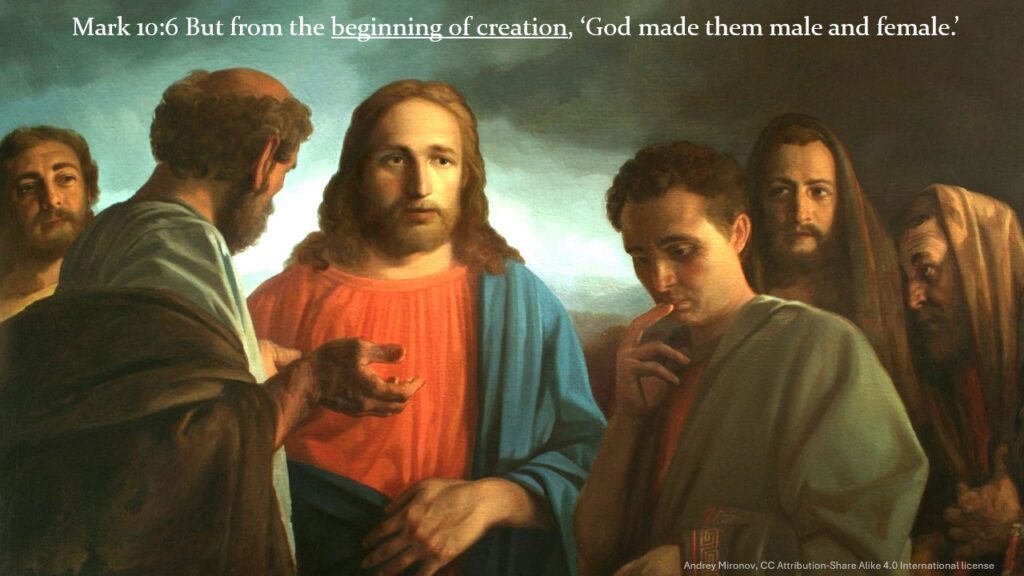
The Testimony from Science
The following link is to a webpage on the Creation.com website that offers “101 evidences for a young age of the earth and universe.” There are five categories of evidences including biological (11 evidences), geological (39 evidences), radiometric dating (14 evidences), astronomical (31 evidences for (as they say) “a young(er) age of the earth and the universe,”) and human history (6 evidences). All 101 evidences either directly support a young age or are consistent with a young age for creation. (Also, see: ‘Young’ age of the Earth & Universe Q&A.)
From the website: “Examples of young ages listed here are also obtained by applying the same principle of uniformitarianism.” Uniformitarianism, i.e. “the present is the key to the past,” is the governing principle of the conventional approach to age dating. Charles Lyell, friend and mentor of Charles Darwin, first developed the principle of uniformitarianism in his three-volume set “Principles of Geology,” published between 1830 and 1833, wherein Lyell argued that past (unobserved) geologic processes operated at the same rate and manner in which they are currently observed to occur today. Lyell, a deist rather than a believer in the Bible, was not a geologist by training. One of his objectives was to discredit any claim to catastrophism, especially Noah’s year-long flood, as the source or condition that resulted in any currently existing geological formation.
If indeed “the present is the key to the past,” then there is no history of any significance, because, as Peter observed (2 Peter 3:4), if they can say all things have continued in the past as they do today, then Christ did not come and his promise of coming again is an empty hope.
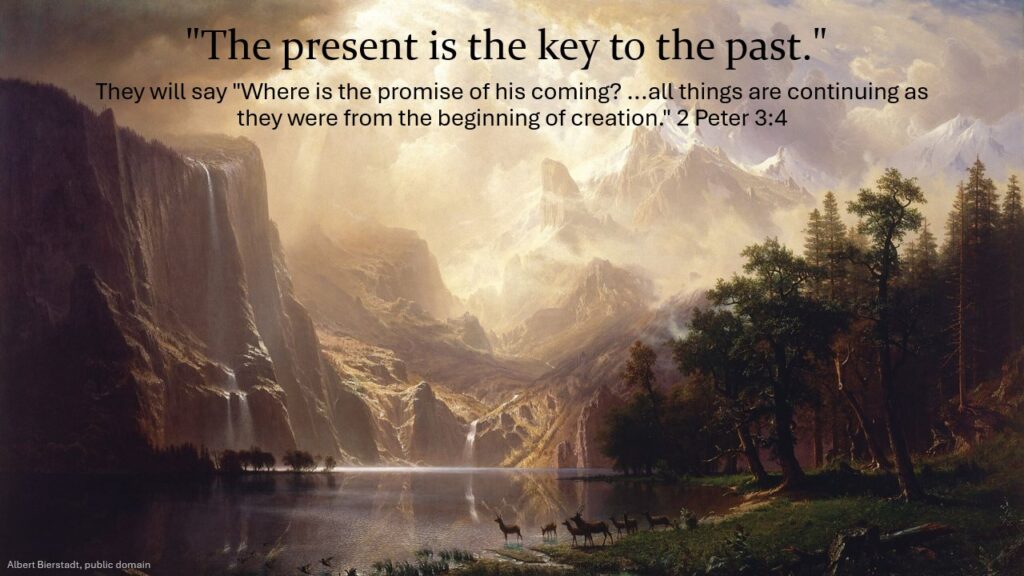
Returning to the topic of determining the age of the creation, by applying the principle of uniformitarianism to the 101 different techniques for determining the age of creation, the results indicate either an actual age or a maximum possible age which, for these techniques, is much less than the conventionally accepted age of the earth and universe.
The results, as always, depend on the governing assumptions. If, for a particular age dating technique, the assumption of uniformitarianism is not valid (i.e. the dating technique is actually governed by catastrophism) then the actual age could be more accurately determined by using more appropriate assumptions. Regardless of the techniques used, or who is doing the analysis of dating, the underlying assumptions regarding past processes and resulting effects will always govern the results. Consequently, I encourage you to examine the evidences presented on the website yourself and use your own logic and intelligence to determine their veracity. Below are my favorite dating techniques from each of the five scientific areas listed in the first paragraph.
From Biology: #7 Dinosaur blood cells, blood vessels, proteins (hemoglobin, osteocalcin, collagen, histones) and DNA are not consistent with their supposed more than 65-million-year age, but make more sense if the remains are thousands of years old (at most).
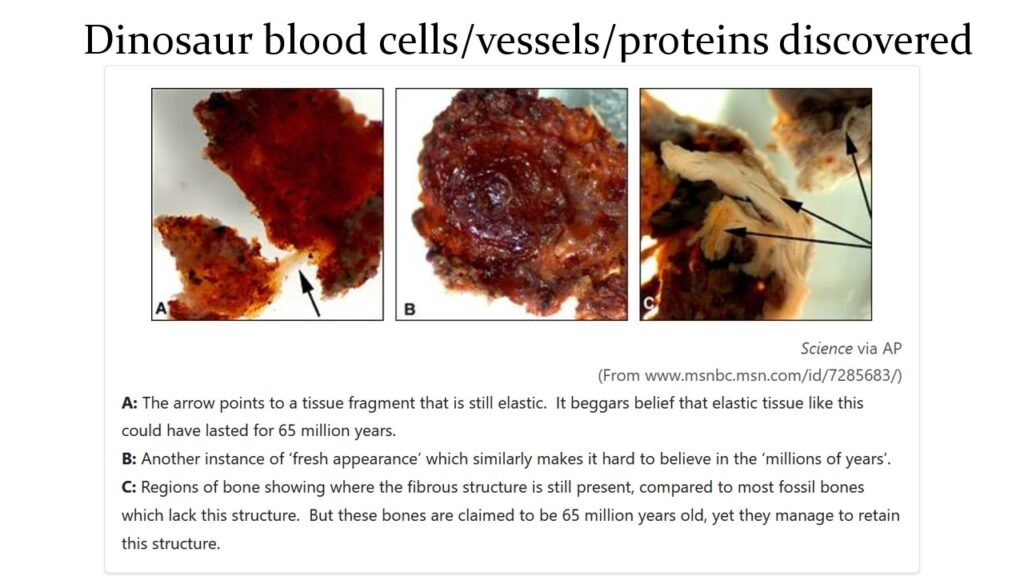
From Geology: #46 Rapid reversals in paleomagnetism undermine use of paleomagnetism in long age dating of rocks and speak of rapid processes, compressing the long-age time scale enormously.
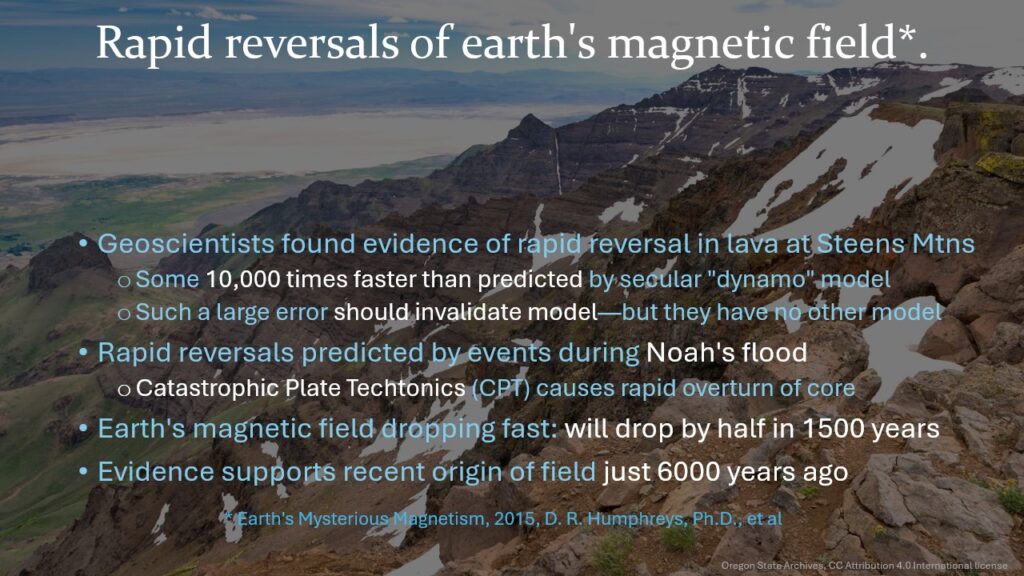
From Radiometric Dating: #51-54 Extant Carbon-14 in coal, oil, fossil wood, and diamonds suggests ages of thousands of years and clearly contradict ages of millions of years, since all C-14 in these materials should have decayed to “nothing” long ago.
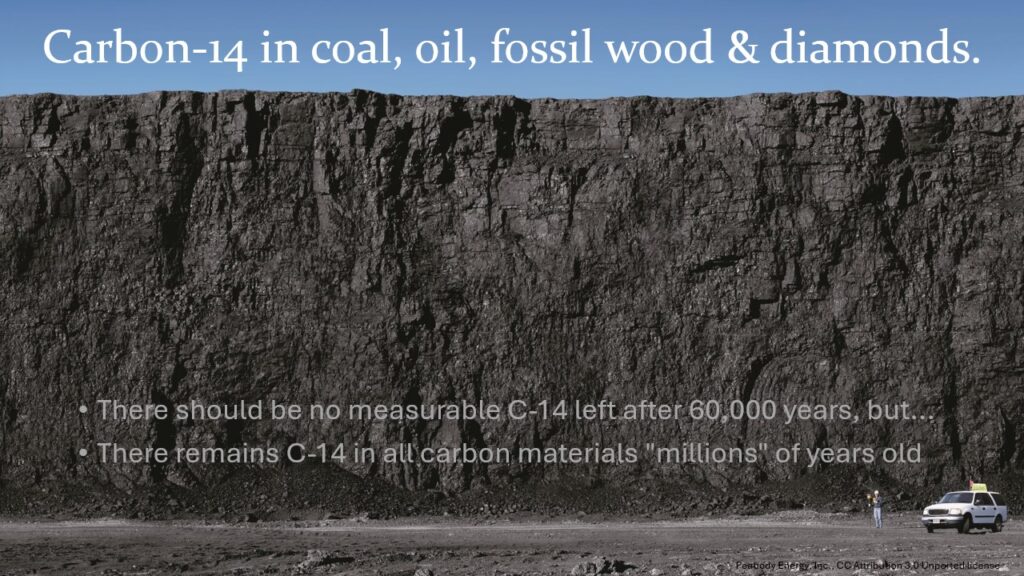
From Astronomical evidence: #67 The moon’s former magnetic field. Rocks sampled from the moon’s crust have residual magnetism that indicates that the moon once had a magnetic field much stronger than Earth’s magnetic field today. No plausible ‘dynamo’ hypothesis could account for even a weak magnetic field, let alone a strong one that could leave such residual magnetism in a billions-of-years’ time-frame. The evidence is much more consistent with a recent creation of the moon and its magnetic field with subsequent free (exponential) decay of the magnetic field in the 6,000 years since then. Humphreys, D.R., The moon’s former magnetic field—still a huge problem for evolutionists, J. Creation 26(1):5–6, 2012.
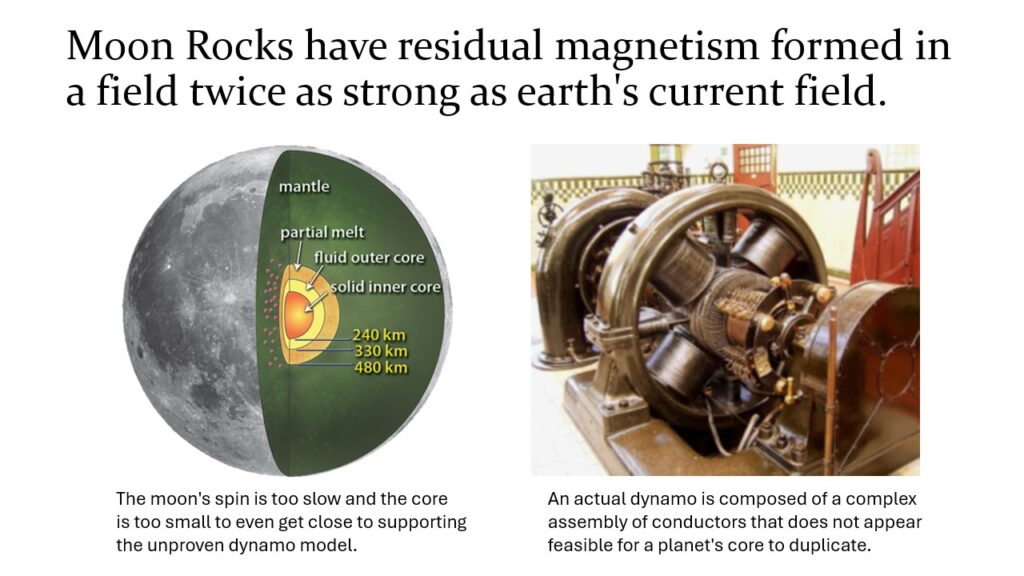
From human history: #96-101 Human history attests to a young age. Population growth can easily grow from six people to today’s population in 4,500 years. There are not enough stone age skeletons and artifacts for 100,000 years of “cave” dwelling. Length of all recorded histories are only several thousand years at most. Languages are too similar across diverse areas of the globe for there to be multiple 10,000 years separation between people groups. Common cultural ‘myths’ speak of recent separation of peoples around the world. An example of this is the frequency of stories of an earth-destroying flood. Finally, the origin of agriculture is too recent for supposed length of time that “modern” man has existed.
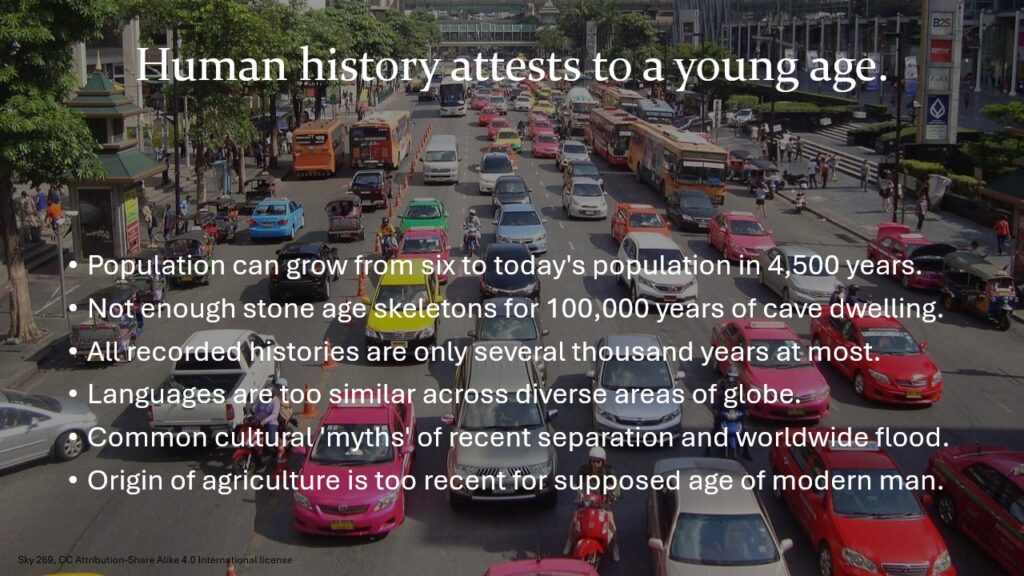
New Testament references to a recent creation
Below are six verses (seven including the verse from Mark 10:6 shown above) from the New Testament that assert in one manner or another that humans have existed from the beginning of the world (i.e. the creation). These verses include sayings of Jesus addressing theological issues, and various apostles writing about the theology of belief in Christ and his work upon the cross. There are no verses in the Old or New Testaments that would indicate that there were long ages of the earth prior to the existence of mankind on the earth.
Mark 13:19 For in those days there will be such tribulation as has not been from the beginning of the creation that God created until now, and never will be.
- Jesus is speaking of the tribulation coming upon the people when the “abomination of desolation” shall appear. The tribulation in this verse obviously speaks of the tribulation from the “beginning of creation” that people experience.
Luke 11:50 …the blood of all the prophets, shed from the foundation of the world, may be charged against this generation…
- Jesus, speaking about the judgement of the Jews of his day, references the prophets that have been killed (beginning with Abel) who lived “from the foundation of the world.”
Romans 1:20 For his invisible attributes, namely, his eternal power and divine nature, have been clearly perceived, ever since the creation of the world, in the things that have been made. So, they are without excuse.
- Paul, speaking of those who deny Christ, asserts that (humans) have perceived the power and nature of God since the “creation of the world.”
Romans 8:20 For the creation was subjected to futility, not willingly, but because of him who subjected it…
- Paul, speaking about the creation, asserts that God subjected the creation to futility because of the sin of man. Here futility speaks of decay and death (Genesis 3). The conclusion is that before man’s sin, the creation was good, implying it was without suffering and death, but the geological column is full of creatures many of whom suffered and died horribly by rapid and suffocating burial in sediments (more on that in the section on Geology). Since only man could sin, and God cursed the creation after man sinned, the implication is that man existed at the time the creation was subjected to futility. The implication is that all the animals that died and are now buried in sediments as fossils were buried after the sin of man.
Hebrews 9:25-26 Nor was it to offer himself repeatedly, as the high priest enters the holy places every year with blood not his own, for then he would have had to suffer repeatedly since the foundation of the world. But as it is, he has appeared once for all at the end of the ages to put away sin by the sacrifice of himself.
- Addressing the nature of Jesus’ sacrifice for us, the author of Hebrews asserts that if the sacrifice of Christ was similar to the yearly sacrifices of the Jewish high priests, then Christ would have had to suffer every year since the “foundation of the earth” because man, i.e. Adam and Eve, existed and sinned at the foundation of the world, that is, from the beginning of creation.
2 Peter 3:4 They will say, “Where is the promise of his coming? For ever since the fathers fell asleep, all things are continuing as they were from the beginning of creation.”
- Peter is addressing the skepticism of the peoples of that time. Oddly, their objection sounds very much like the modern principle of Geological Uniformitarianism that is used today to discount the occurrence of Noah’s global flood. This verse is not as unambiguous as the other verses above in asserting a young age for creation, but it does imply that the fathers that fell asleep may have been present at the “beginning of creation.”